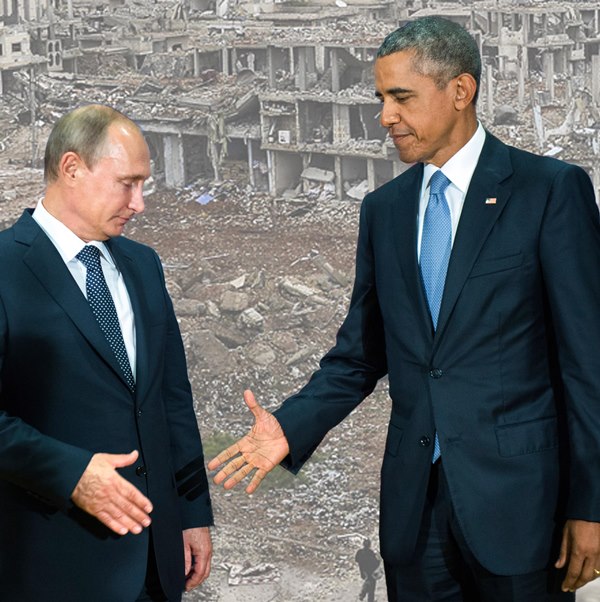Strategic Estimate 2016 is Khilafah.com’s sixth annual assessment of the global balance of power. We concluded our assessment at the end of 2014 with the US remaining the world superpower and navigating the myriad of challenges it faced across the world with Syria a key foreign policy challenge.
Download the book from here.
Anyone would be forgiven for assuming World War 3 was taking place as Syria as throughout 2015 the artificially created nation at the heart of the Middle East occupied the attention of the world’s powers and the regional powers. Whilst the Arab Spring has been reversed in many countries, with much of the pre-revolutionary governments back in power and with other nations marred in civil war, Syria remains the only nation upon its original aim of toppling the regime and replacing it with something in line with the people’s values. In Strategic Estimate 2016 we assess where matters stand, the emerging trends and why the outcome in Syria is so important to so many countries around the world.
The world’s superpower was occupied by events in the Middle East in 2015. In Iraq it became patently clear the Iraqi government in Baghdad is built upon a pack of cards and its ability to force itself upon the rest of the country is non-existent. The US spent over a decade building the architecture in Iraq that would allow it to dominate the region. The Baghdad government lost Ramadi, Tikrit and Falluja in 2015 despite immense US military aid and presence. Similarly in Syria US plans to build a secular moderate opposition and the failure of its ‘train-and-equip’ program are just some examples of the challenges the US is facing in Syria. US plans for both countries, why they are failing and the regional implications will be assessed. In 2016 the US Caucus will be in full swing for the election of the US president in November 2016. Barack Hussain Obama back in 2008, on the back of an immensely popular ‘It’s time for change’ and ‘Yes We Can’ campaign captured the imagination of the world as America’s first black president. But his term in office was anything but easy and he leaves office with many US citizens considering him to have weakened America’s global position. In Strategic Estimate 2016, we asses Obama’s term in office and what it reveals about the US system and what the new president will inherit.
2015 has been a difficult year for Russia. Russia’s invasion of Ukraine and subsequent annexation of Crimea remains frozen. But Russian difficulties have been at home rather than abroad. When oil prices halved in 2014 this precipitated an economic crisis which has continued into 2015. Capital flight, budget deficits and sharp reductions in foreign investment is seriously hurting the Russian economy. But Russia surprised many with its invasion of Syria in October 2015, its first foreign policy adventure beyond its region since the collapse of the Soviet Union over two decades ago. In Strategic Estimate 2016 we analyze the political implications of this and whether this is the beginning of a new assertive Russia challenging the global superpower or just a temporary, one-off adventure.
In 2015 China continued with its colossal economic transformation, but its attempt to transition from a low wage and aggressive export economy to one based on domestic consumption nearly had the carpet pulled underneath it when major stock market crashes resulted in huge state intervention to prop them up. In Strategic Estimate 2016, we assess the implication of this and where the economic transformation stands. Chinese policy makers published the country’s military white paper which defined China’s military orientation for the future. China’s military ascent is an important aspect of Chinese plans to dominate the region and its future role in the world. In Strategic Estimate 2016 we assess the white paper and its implications. Two announcements by Chinese officials in 2015 will impact China’s global ambitions, its announcement of the end of the three decades long one child policy and the development of the Asian Infrastructure Investment Bank (AIIB), a direct challenge to the Bretton Woods institutes. In Strategic Estimate 2016, we assess the implications of both developments on China’s place in the world.
The economic crisis continued throughout the European Union in 2015 and differences between EU states on the future of the union continued. The migration crisis from North Africa, the biggest since WW2 dominated the European continent and highlighted two trends that we have been following for some time. The resurgence of Germany at the centre of Europe and the divisions between the nations within the EU. The migration crisis revealed these further and will have serious implication for the future of Europe.
The global economy reached its 8th year of the global economic crisis that began in 2007. But the world’s largest economies – the US and China both struggled to grow in 2015. The effects of the economic crisis still weigh heavily upon the global economy and the world’s premier countries continue in their struggle to generate economic growth. In Strategic Estimate 2016, we assess the state of the global economy.
Strategic Estimate analyses the global balance of power and its constituent parts as well as the factors that can effect it. As an annual publication, we usually focus on factors within an annual cycle and in the short to medium term-that affect the global situation. Many of you have written to us and asked about our views on the longer term trends – over a century, and the effect this will have on the global situation. In Strategic Estimate 2016, we look at key strategic trends which will take shape over the next century as well as their implications.
What follows’ inshallah is the author’s opinion and assessment of 2015 and the trends for 2016 and beyond. Like any assessment, they are estimates and forecasts.
Adnan Khan
13 Rabi Al-thani 1437 AH
23 January 2016 CE

